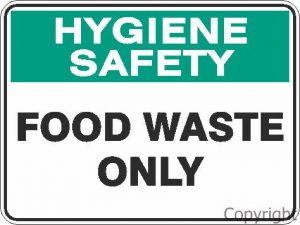Organizations dedicated to hunger relief have grown in recent years to increase their capacity to reach more food insecure populations for example, Feeding America served 11% more meals in 2016 than in 2015.
 One barrier to ensuring food safety during the diversion and donation of food is lack of effective training for volunteers. Some programs are affiliated with universities and as such rely on student volunteers. Students have been shown to have risky practices in food-handling environments and can create situations in which food distributed by hunger-relief organizations can be at risk for unintentional contamination.
One barrier to ensuring food safety during the diversion and donation of food is lack of effective training for volunteers. Some programs are affiliated with universities and as such rely on student volunteers. Students have been shown to have risky practices in food-handling environments and can create situations in which food distributed by hunger-relief organizations can be at risk for unintentional contamination.
Using a food recovery program at a large, land-grant university, food-handling behaviors of student volunteers were observed in-person and compared to self-reported behaviors and self-identified training needs gathered via a survey.
Commonly observe behaviors were improper handwashing, inconsistent record keeping, and the use of unclean or contaminated equipment for example, during deliveries only 13% of volunteers were observed washing their hands at least once, while 69% self-reported doing so.
Training volunteers is necessary in view of the vulnerability to foodborne illness of those receiving recovered food. Trainings specifically for this audience should include unique handling scenarios adapted to food handler best practices.
Food-handling behaviors of student volunteers in a university food recovery program
Food Protection Trends, Volume 38, Issue 4, Pages 284-294, 2018
Lester Schonberger, Renee R. Boyer, Melissa W. Chase
http://staging.nxtbook.com/nxtbooks/trilix/fpt_20180708/stage.php#/44
